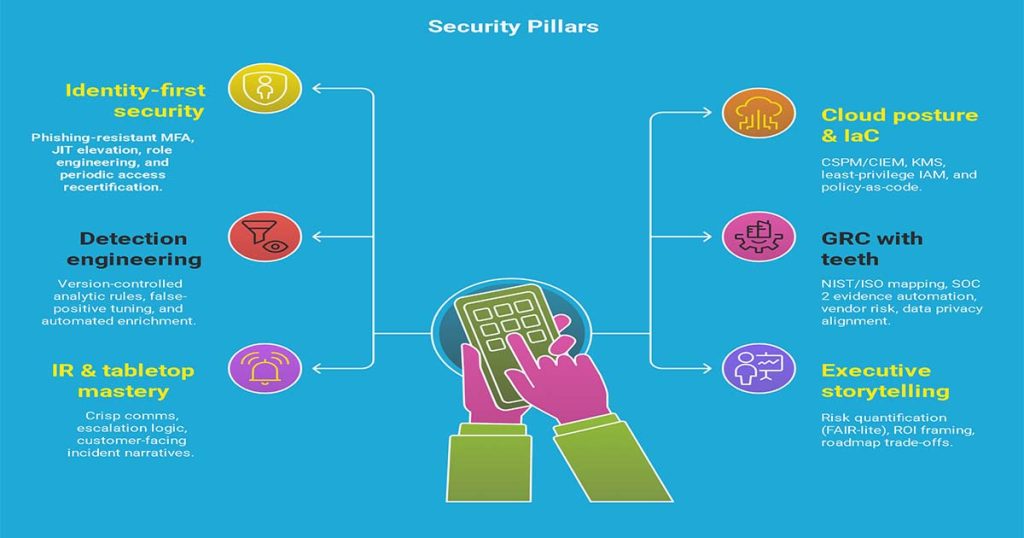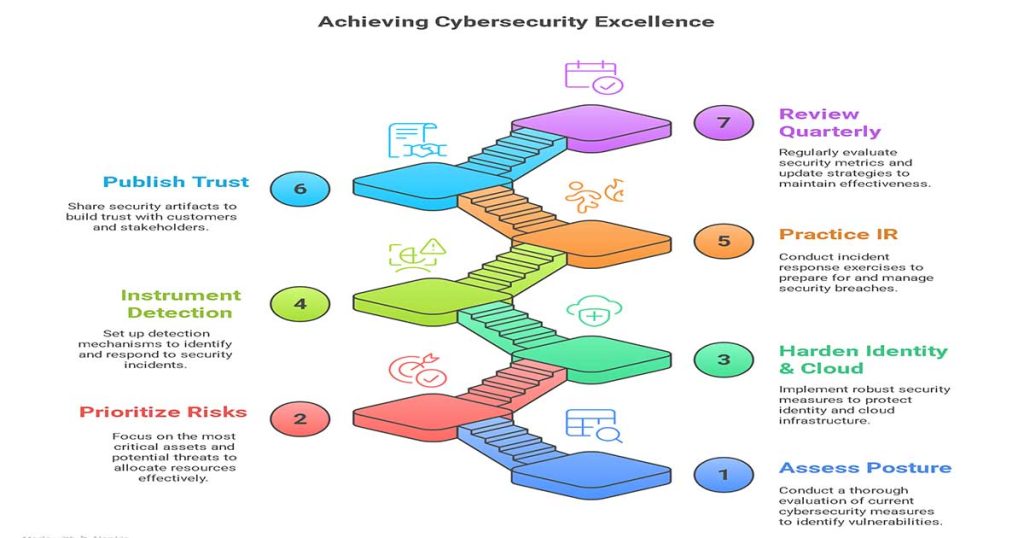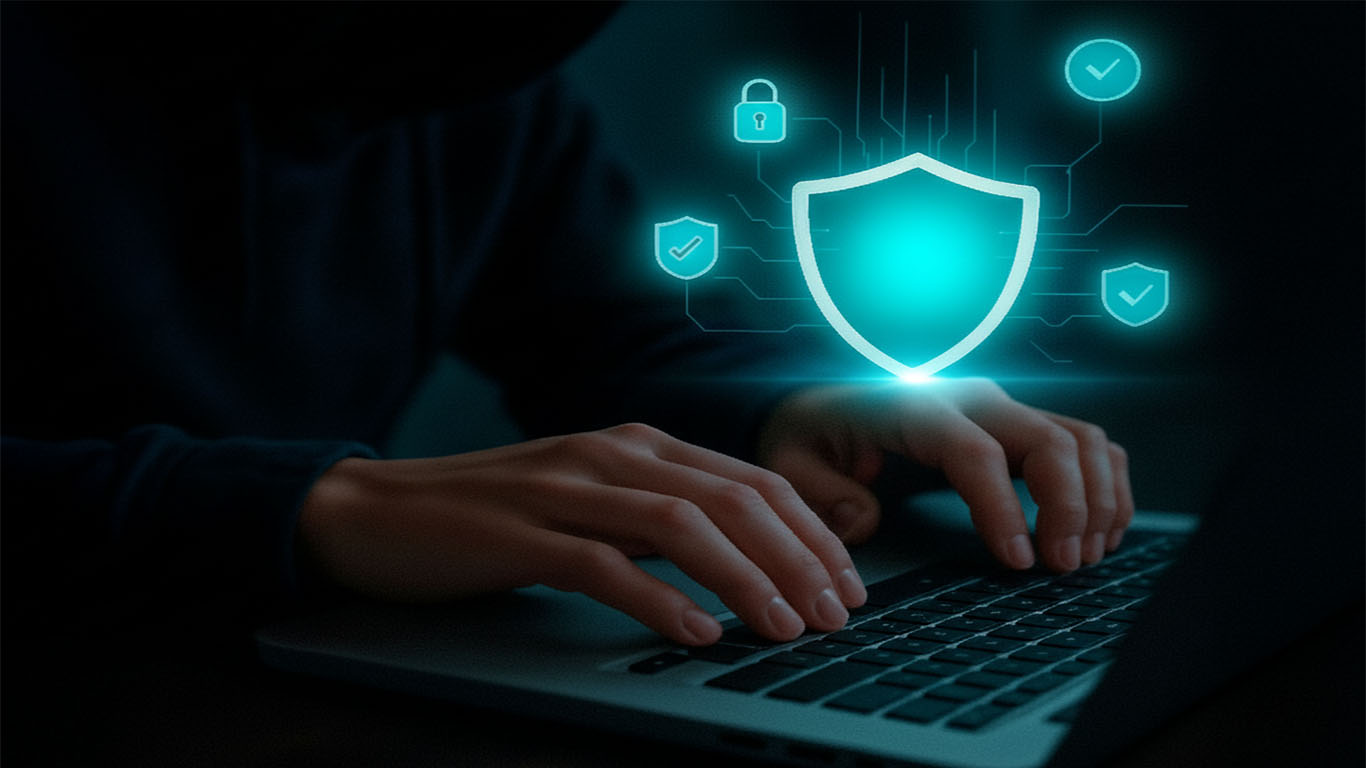See how cybersecurity experts drive ROI and trust. Compare skills, salaries, services & hiring checklists for USA, UK, Canada & Australia.
Enterprises in Tier One markets don’t just buy tools—they buy outcomes. That’s why Cybersecurity experts are now embedded in revenue strategy as much as risk. If your funnels stall in procurement, if cyber insurance premiums creep up, or if a single misconfigured cloud bucket can derail a quarter, the missing lever isn’t another product—it’s the right specialist with the judgment to prioritize, the playbooks to operationalize, and the communication skills to win executive support.
Think about the last major deal your sales team “almost” closed. The security questionnaire was daunting. The customer’s CISO needed evidence of Zero Trust, vendor risk controls, and tested incident response. A senior cyber security specialist can compress that cycle: map controls to the buyer’s framework, produce authoritative artifacts, and host a technical trust briefing. The result? Faster approvals, fewer redlines, and higher close rates. Meanwhile, expert-driven posture management reduces MTTR, exposure windows, and fraud loss—dropping directly to the bottom line.
This guide shows how to identify, hire, and deploy top cybersecurity experts in the world of practice (not just name recognition) to drive ROI, compliance, and enterprise trust across the USA, UK, Canada, and Australia. You’ll get skill matrices, cost models, salary bands, micro-CTAs, and checklists you can put in motion today. Takeaway: Treat security expertise like a profit lever, and you’ll feel the lift across pipeline, renewals, and brand equity.
Why Cybersecurity Experts Are Critical for Business ROI and Enterprise Growth
Security outcomes are business outcomes. Senior experts translate technical risk into CFO-ready numbers: downtime × revenue/hour, fraud loss avoided, premium reductions, and the delta in sales velocity from cleaner security reviews. Their greatest value isn’t a tool; it’s prioritization—deciding which 10% of controls deliver 90% of the risk reduction or deal acceleration.
Mini case study — USA (Fintech)
A fast-growing fintech kept losing seven-figure deals at vendor risk review. A contract vCISO built a Trust Center, cross-walked controls to the client’s framework, and rehearsed a 30-minute “security demo.” Time in security review fell from 74 to 22 days; the quarter ended with a 22% uplift in enterprise closes.
| Value Driver | What Experts Do | Measurable Signal |
| Deal velocity | Align evidence to buyer frameworks (NIST/ISO/SOC 2) | Shorter security reviews |
| Loss avoidance | Reduce MTTD/MTTR; harden identity & cloud | Fewer Sev-1s; premium relief |
| Team leverage | Triage alerts; automate runbooks | More incidents handled per analyst |
| Brand trust | Transparent security comms & leadership | Higher win rate vs. competitors |
Key Tip: Ask every expert candidate to narrate a before/after business metric they moved, not just a list of technologies.
Demand for Cybersecurity Experts in Tier One Countries (USA, UK, Canada, Australia)
Boards and regulators have shifted from “Do you have tools?” to “Prove the controls work.” That pressure fuels sustained demand for experts who can both implement and evidence security.
- USA: Cloud-first, SaaS-heavy, and insurance-driven. High demand for detection engineering, identity governance, and product security.
- UK: Strong public-sector standards; demand for GRC leaders, vendor risk pros, and SOC talent.
- Canada: Privacy-forward; co-op culture feeds SOC, IR, and cloud governance roles.
- Australia: Rapid cloud adoption; strong appetite for IR, identity, and Zero Trust specialists.
| Region | Hot Roles | Hiring Signal |
| USA | Detection Eng, Cloud Sec, Product Sec | Shows detections-as-code, IaC guardrails |
| UK | GRC Leads, Vendor Risk, SOC Mgmt | ISO 27001/UK GDPR fluency, audit mastery |
| Canada | Cloud Gov, SOC/IR, Privacy Ops | Metrics + practical incident narratives |
| Australia | Identity Gov, IR, Cloud Posture | Zero Trust milestones, tabletop records |
Top Cybersecurity Skills Every Decision-Maker Needs in 2025
The modern expert blends technical depth with business fluency:
- Identity-first security: phishing-resistant MFA, JIT elevation, role engineering, and periodic access recertification.
- Cloud posture & IaC: CSPM/CIEM, KMS, least-privilege IAM, and policy-as-code.
- Detection engineering: version-controlled analytic rules, false-positive tuning, and automated enrichment.
- GRC with teeth: NIST/ISO mapping, SOC 2 evidence automation, vendor risk, data privacy alignment.
- IR & tabletop mastery: crisp comms, escalation logic, customer-facing incident narratives.
- Executive storytelling: risk quantification (FAIR-lite), ROI framing, roadmap trade-offs.

| Skill Cluster | “Great” Looks Like | Why It Converts |
| Identity | Measurable drop in risky sign-ins | Fewer account takeovers |
| Cloud | Guardrails that block drift | Fewer Sev-1s, faster audits |
| Detections | Tests + owners per rule | Lower alert fatigue |
| GRC | Crosswalks & Trust Center | Faster procurement |
| IR | Playbooks + comms | Lower dwell time |
Key Tip: Hire for portfolio proof—sanitized runbooks, detections, and post-incident writeups.
AI-Powered Security Testing Services for Tier One Enterprises
Attackers automate recon and phishing at scale. Defenders respond with AI-assisted testing to compress cycles:
- AI-guided fuzzing for APIs and microservices.
- Model-assisted threat modeling to enumerate misconfig patterns.
- Prioritization engines that tie findings to real exploitability and business impact.
| Service | Enterprise Win | ROI Signal |
| AI-assisted pentest | Faster, broader coverage | More findings per dollar |
| API fuzzing | Stops revenue-leak bugs | Fewer chargebacks |
| Cloud misconfig hunting | Guardrails enforced | Audit time down |
Cybersecurity Experts for Lead Generation & Risk Mitigation in Global Markets
Security can create pipeline when experts help marketing and sales:
- Publish security-by-design narratives and customer-safe summaries of tabletop outcomes.
- Package buyer-facing artifacts: shared responsibility models, data flow diagrams, and compliance matrices.
- Host trust briefings with CISO-level talent for target accounts.
Result: Security moves from objection to differentiator—especially in finance, health, and public sector.
How Cybersecurity Consulting Services Drive ROI & Conversions for Tier One Businesses
Consulting experts succeed when scoped to business outcomes:
Pros & cons
| Model | Pros | Cons |
| Retainer (vCISO/Advisory) | Continuity, board presence | Requires tight KPIs |
| Project (pentest, SOC uplift) | Clear start/finish | Can miss big-picture benefit |
| Managed (MDR/MXDR) | Speed to value | Less internal skill growth |
Expert Insight: Pair an advisory leader with a hands-on engineer and a GRC specialist. That triad moves metrics and paperwork.
Why Hire Cybersecurity Experts to Build Enterprise Trust & Data Protection Compliance
Experts accelerate evidence: controls mapped, proof collected, and findings turned into credible remedial plans. They translate privacy and data residency into clear architectural commitments, lowering legal friction and enabling global expansion.
Key Tip: Ask experts to produce a one-page customer-safe data flow you can reuse in RFPs.
Featured Cybersecurity Events & ROI-Focused Training Programs for Executives
- Executive Tabletop Series: Finance + Legal + Ops simulate a breach with comms drills.
- Security for Revenue Leaders: How to use Trust Centers in enterprise sales.
- Board Bootcamp: Interpreting security KPIs and approving the roadmap.
Pay Scale of Cybersecurity Experts Across the USA, UK, Canada & Australia
| Role | USA | UK | Canada | Australia |
| CISO / Head of Sec | $220k–$350k+ | £140k–£220k | CAD 200k–300k | AUD 230k–350k |
| Security Architect | $160k–$230k | £95k–£140k | CAD 140k–200k | AUD 160k–230k |
| Detection Engineer | $140k–$200k | £80k–£120k | CAD 120k–170k | AUD 130k–185k |
| GRC Lead | $130k–$190k | £75k–£115k | CAD 110k–160k | AUD 120k–175k |
Ranges vary by sector and equity/bonus.
Cybersecurity Outsourcing Strategies for Enterprise Cost Optimization & ROI Growth
Blend internal stewardship with specialist partners:
- Keep identity, IR leadership, and product security close.
- Outsource 24/7 monitoring (MDR) to reduce staffing burden.
- Use boutique firms for deep pentest and cloud posture sprints.
How to Stay Secure With Help From Cybersecurity Experts: Step-by-Step Guide
- Assess posture: asset inventory, control mapping, gaps.
- Prioritize: crown jewels, top misuse cases, quick wins.
- Harden identity & cloud: MFA, JIT, guardrails.
- Instrument detection: rules with owners, test harness.
- Practice IR: tabletop + comms.
- Publish trust: customer-safe artifacts.
- Review quarterly: metrics + roadmap.

Cybersecurity Expert Hiring Resources: A Tier One Business Checklist
- Outcomes-based JD (business KPIs).
- Portfolio evidence asked up front.
- Panel with Security + Sales + Legal.
- Paid take-home (time-boxed) aligned to real tasks.
- References focused on metric movement.
Why Following Cybersecurity Experts Builds Trust & Enterprise Compliance ROI
Executives who follow reputable practitioners adopt proven patterns earlier: safer defaults, leaner controls that pass audits, and better reporting. Share expert posts internally; many teams adopt faster when guidance comes from an external authority plus an internal sponsor.
Cybersecurity Masters Programs for Executives: Growth & Conversion Benefits
Executive-oriented master’s tracks and certificates (security leadership, risk quant, privacy law) sharpen board communication and commercial framing—often unlocking promotions and increased budget credibility.
What Enterprises Should Know Before Hiring Cybersecurity Experts in 2025
- Ask for artifacts.
- Scope to metrics.
- Insist on knowledge transfer.
- Budget for quick wins + hardening backlog.
Takeaway: Your first 90 days should show a visible reduction in friction (alerts, reviews, audits).
Cybersecurity Experts Salary Insights: USA, UK, Canada & Australia Market Trend
- Cloud and identity specialists continue the steepest rise.
- Detection engineering premiums hold as teams shift to analytics-as-code.
- GRC leaders with automation chops now command architect-level pay.
Cybersecurity Experts Jobs Demand: Enterprise Hiring Growth in Tier One Countries
Hiring surges in: SaaS, fintech, health tech, government suppliers, critical infrastructure, and AI platform companies. Cross-functional roles (security + data + legal) see outsized growth.
Case Study: How Cybersecurity Experts Increased ROI for Fortune 500 Enterprises
A Fortune 500 manufacturer embedded experts to build a Zero Trust roadmap, retire redundant tools, and codify detections. They cut tool spend 18%, MTTR 46%, and shaved 31 days off enterprise security reviews—freeing sales capacity.
Industry Trends: Cybersecurity Freelancers vs Agencies – What Tier One Buyers Choose
- Freelancers: deep niche wins; ideal for targeted sprints.
- Boutique agencies: strong for complex, cross-discipline work.
- Global firms: breadth and executive gravitas; costlier.
Classroom & Online Training Schedules for Cybersecurity Experts in North America & Europe
Quarterly cadence that works:
- Q1: Identity & Access (JIT, PAM).
- Q2: Cloud Posture & KMS.
- Q3: Detections & IR comms drills.
- Q4: Tabletop + audit season prep.
Tip: Tie every course to a runbook PR or control close.
Gartner Report: ROI Impact of Cybersecurity Experts in Tier One Enterprises (2025)
While individual findings vary by sector, many enterprises report that structured expert programs—advisory + detection + GRC—correlate with lower incident costs and shorter procurement cycles. Treat this heading as a reminder: the ROI conversation belongs in security.
Check Out Cybersecurity Experts With the Skills You Need for Your Next Enterprise Project
Build a bench: identity engineer, cloud posture lead, detection engineer, IR comms lead, and GRC automation specialist. Match each to concrete KPIs and a 30/60/90 roadmap.
PwC Cybersecurity ROI Report: 68% of Tier One Businesses Reduced Costs With Experts
Many organizations that centralized security leadership and invested in expert-led automation reported lower audit costs, fewer severe incidents, and more efficient renewals. The pattern is consistent: people + process + measured outcomes beat product-only approaches.
MIT Study: Escalating Privilege Risks & Why Enterprises Need Expert Mitigation Strategies
Privilege creep and identity sprawl demand role engineering, JIT elevation, and continuous recertification. Experts keep the human systems (joiners, movers, leavers) tight so tech controls actually hold.
Cybersecurity Experts’ Compliance Checklist for Tier One Corporate Enterprises”
- Framework mapped (NIST/ISO/SOC 2).
- Evidence automated.
- Vendor risk current.
- Data flows documented.
- IR plan tested & customer-safe.
FAQs:
What do cybersecurity experts do for enterprise ROI growth?
They reduce loss (fewer, smaller incidents) and accelerate revenue (faster security approvals). Practically, that means hardening identity and cloud guardrails, tuning detections to cut noise, codifying playbooks to shrink MTTR, and packaging proof—Trust Centers, diagrams, and audit letters—to speed procurement. An expert’s job is to aim security work at financial outcomes: less downtime × revenue/hour, lower fraud loss, premium relief, and shorter sales cycles. When scoped correctly, you’ll see measurable wins within a quarter.
Who are the best cybersecurity experts in the USA, UK, Canada, and Australia?
“Best” depends on your problem. In the USA, look for specialists in cloud posture, detection engineering, and product security; in the UK, strong GRC/ISO and vendor risk leaders; in Canada, privacy + SOC/IR practitioners; in Australia, identity and Zero Trust leads. Favor experts with portfolio artifacts (sanitized detections, playbooks, crosswalks) and references tied to metrics (sales days reduced, MTTR improved). A boutique team that has solved your exact problem twice is better than a big name without direct relevance.
How much do cybersecurity experts make in Tier One markets?
Comp varies by role and city. As a guide: senior engineers and architects often earn the equivalent of $140k–$230k; GRC leads $130k–$190k; CISOs $220k–$350k+ in the USA, with proportional ranges in the UK, Canada, and Australia. Add bonuses, equity, and on-call pay. Contractors charge day rates or outcome-based fees; expect higher rates for short-notice IR, deep cloud posture, or regulated industry expertise.
What are the top 3 skills cybersecurity experts need for enterprise trust?
- Identity governance & Zero Trust (JIT, role design, phishing-resistant MFA). 2) Evidence-ready GRC (NIST/ISO mapping, SOC 2 automation, vendor risk fluency). 3) Executive communication (risk quantification, security demo skills). Together, these convert technical work into faster deals, cleaner audits, and fewer incidents—which is how trust shows up on the P&L.
What are the top 10 cybersecurity experts companies in North America & Europe?
Look for a mix of platform vendors, MDR providers, and advisory boutiques. A representative shortlist many enterprises evaluate includes providers known for identity, endpoint, cloud posture, MDR, pentest, and GRC services. Your best fit depends on stack and sector—always pilot with KPIs tied to procurement speed and incident reduction.
How much does it cost to hire a cybersecurity expert for a Tier One enterprise?
For contractors: $150–$350+ per hour depending on specialization and urgency; day rates scale with scope. For retainers (vCISO/advisory), $8k–$40k/month is common. Outcome-priced SOWs (e.g., Trust Center + evidence automation + security demo) often land $40k–$150k+. Anchor the spend to financial outcomes (sales days saved, premium reductions, Sev-1 avoidance).
What are the famous cybersecurity experts trusted by Fortune 500 businesses?
Fortune buyers value track records more than fame. Seek leaders who’ve shipped Zero Trust milestones, passed tough audits, or run complex IR programs. Ask for specific artifacts and references. Well-known public educators and researchers are valuable, but your organization needs experts whose prior wins mirror your constraints—industry, compliance scope, and stack.
Cybersecurity experts near me – how to find ROI-driven consultants in the USA/UK?
Start with peer references, then shortlist by artifacts and KPI-based SOWs. Join regional security meetups and industry associations (ISACA/ISC² chapters). Post outcome-forward briefs: “Reduce security review time from 60→30 days,” not “knows X tool.” Prioritize candidates who can show before/after metrics and who offer knowledge transfer to your team.
Cybersecurity experts jobs – which Tier One companies are hiring in 2025?
SaaS leaders, cloud providers, fintech/insurtech, healthcare platforms, government suppliers, and critical infrastructure operators. Roles skew toward cloud security, identity governance, detection engineering, product security, and GRC automation. Highlight your impact bullets (MTTR cut, audit passed, risk days removed) to stand out.
What’s the difference between cybersecurity freelancers vs agencies for enterprises?
Freelancers excel at targeted sprints and urgent expertise (great for pentests, detections, or a trust artifact). Boutique agencies bring cross-discipline teams and continuity; large firms add breadth and executive weight. Choose based on scope complexity and need for ongoing transformation. Many enterprises blend a boutique for depth with MDR for 24/7 coverage under a shared KPI dashboard.
Cybersecurity expert services comparison: Which delivers the best ROI?
Highest ROI comes from engagements tied to hard metrics: shortened security reviews, reduced Sev-1 volume, lower fraud loss, or insurance discounts. Whether advisory, MDR, or pentest, insist on: 1) clear baseline, 2) KPI goals, 3) weekly progress, 4) handoff artifacts. If outcomes aren’t defined, ROI will be luck, not design.
Cybersecurity experts salary vs demand: Which Tier One region pays the highest?
Overall, the USA pays the most, then Australia, Canada, and the UK—though London pays to narrow the gap at senior levels. Demand remains elevated everywhere for cloud and identity leaders, detection engineers, and product security specialists. Cross-border experience and compliance fluency often add a premium.
What’s the best checklist for hiring cybersecurity experts in 2025?
- Outcomes-based JD (business KPIs).
- Portfolio artifacts required.
- Security demo in panel interview.
- Reference calls on metrics moved.
- 30/60/90 plan with measurable wins.
- Knowledge-transfer clause in SOW.
- Exit criteria tied to ROI.
How do cybersecurity experts ensure enterprise data protection compliance?
They map controls to laws/standards, automate evidence capture, and design privacy-aware architectures (data minimization, encryption, residency). Experts run tabletops that include Legal and PR, maintain vendor risk discipline, and produce buyer-safe documents (data flows, shared responsibility) that stand up in audits and RFPs—building trust while reducing legal exposure.
